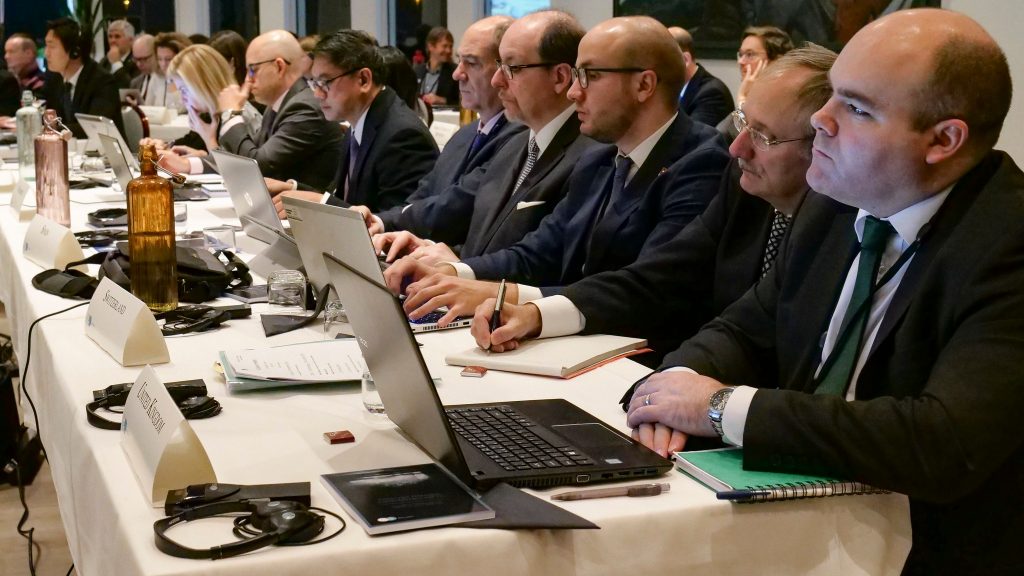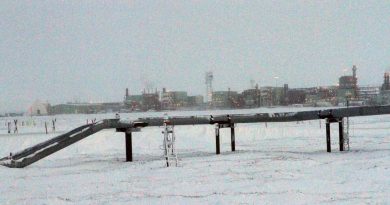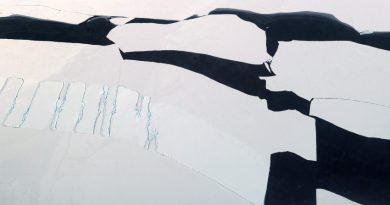Lack of consensus punts Arctic Council observer applications to future ministerial

The Arctic Council didn’t admit any new observers to the international forum during its ministerial meeting on May 20, after members were unable to reach agreement.
“Essentially the decision to have observers is based on consensus, but that consensus was not achieved,” Canada’s Foreign Affairs Minister Marc Garneau told Eye on the Arctic in a phone interview after Thursday’s meeting.
Estonia, Ireland and the Czech Republic were among the nations that submitted applications for consideration.
“Canada certainly supports the concept of observers but there wasn’t unanimity and [for a country] to have observer status it must receive consensus from all group members,” Garneau said.
The Arctic Council is an international forum made up of the world’s eight circumpolar nations: Canada, Denmark/Greenland, Finland, Iceland, Norway, Sweden, Russia and the United States; and six Arctic Indigenous groups, known in the forum as permanent participants: the Aleut International Association, the Arctic Athabaskan Council, the Gwich’in Council International, the Inuit Circumpolar Council, the Russian Association of Indigenous Peoples of the North and the Saami Council.
The ministerial meeting took place in Reykjavik where Iceland handed the forum’s two-year rotating chairmanship over to Russia.
Observer role
Observers do not participate in the forum’s consensus decisions, but contribute to the Arctic Council through its six working groups which tackle areas ranging from emergency preparedness, to sustainable development and Arctic contaminants.
The Arctic Council has to date approved 13 non-Arctic states, 13 intergovernmental and interparliamentary organizations; and 12 NGOs as observers to the forum’s work.
In order to become an observer, the country, organization or NGO must fulfill a number of requirements, including the recognition of the Arctic states’ sovereignty and respect for the “values, interests, culture and traditions of Arctic Indigenous peoples.”
Observers are also required to demonstrate prior Arctic expertise that could contribute to the Arctic Council’s work, as well as a political and financial ability to support the work of the permanent participants.
Estonia, Ireland and the Czech Republic had all stressed their expertise and experience with polar research in their applications, as well as the global impact of Arctic climate change on non-Arctic countries.
Besides NGOs and intergovernmental organizations, current observer countries include Germany, Poland, the Netherlands and the United Kingdom, admitted in 1998; France, admitted in 2000; Spain, admitted in 2006; Italy, Japan, China, India, South Korea, Singapore, admitted in 2012, and Switzerland, admitted in 2017.
Write to Eilís Quinn at eilis.quinn(at)cbc.ca
Related stories from around the North:
Canada: Canada supports greater voice for Indigenous organizations on Arctic Council, Eye on the Arctic
Finland: Finnish PM stresses importance of Arctic Council for region’s stability amidst climate change, Yle News
Iceland: With U.S. climate drama behind them, can the Arctic Council turn the page in Reykjavik?, Eye on the Arctic
India: Pole to Pole: India’s Arctic White Paper, Blog by Marc Lanteigne
Norway: Norway’s FM confirms participation in upcoming Arctic Council ministerial, The Independent Barents Observer
Russia: Return to form for Arctic Council as Russia assumes leadership from Iceland, Eye on the Arctic
United States: Russian, U.S. foreign ministers to meet on sidelines of Arctic Council meeting, Eye on the Arctic



